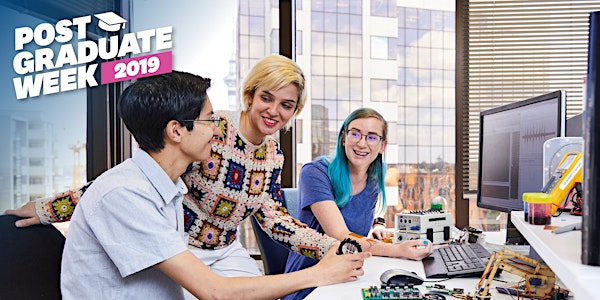
Auckland Bioengineering Institute Open Day
Date and time
Location
Auckland Bioengineering House
70 Symonds Street CBD Auckland, 1010 New ZealandDescription
Auckland Bioengineering Institute is opening its doors for you to experience our world-leading research. Learn from our researchers about how they are using techniques from engineering, mathematics, computer science, physiology (and more) to help solve some of the world's health problems, and to produce technological solutions for better health.
We will be holding a series of short talks from our top scientists (10am,1pm and 4pm) and you can experience our research for yourself with hands-on demonstrations throughout the day.
Any questions, please contact bioeng-pgoffice@auckland.ac.nz
Talk Schedule
10am - 11am
Bryan Ruddy: The development of new actuators and electromechanical systems that enable robotic exoskeletons for health care applications.
Alan Wang: Artificial Intelligence driven medical image diagnosis and image guided therapy
Vickie Shim: Multi-disciplinary research on traumatic brain injury to develop easy-to-use diagnostic tools and therapeutic targets for this currently untreatable disease.
1pm - 2pm
Thor Besier: Computational models and wearable sensors to understand the function of our muscles, bones, and joint tissues with application to orthopaedics, sports medicine and neurological disorders.
JC Han: Energy and the heart in health and disease.
Kelly Burrowes: Tools for measuring and predicting lung function, including computer models and MR imaging.
4pm - 5pm
Peng Du: A combination of sensors and mathematical models that are used to understand how the gut works.
Alys Clark: Physiology changes dramatically in pregnancy and early-life. See how computational models, experiments and imaging can improve health management at critical times of development.
Prasad Babarenda Gamage: Innovative physics-based modelling technologies to improve diagnosis and treatment of breast cancer.
Demo Schedule
11am - 12pm
Implantable devices: Implantable devices like heart pumps require power, but you can’t change batteries inside a person! The Implantable Devices Group will show how wireless power enables long term treatment of disease by devices inside your body.
Biomimetics: The Biomimetics Lab works with soft and stretchy structures. We use soft materials to stretch brain cells, to generate electricity, or as sensors to detect human body motion. We’ll demonstrate a sensing glove enabling the user to interact with objects in a virtual environment.
Cardiac research: Personalised computer modelling of the heart to diagnose heart disease.
Gastrointestinal research: A combination of sensors and mathematical models that are used to understand how the gut works.
2pm - 3pm
Device development: Developing instruments and devices for needle-free drug delivery, and for studying the heart.
Software tools: Programming jaw mechanics in Python to simulate speech
Lung Health: How do clinicians assess our breathing and what can we do to help improve diagnosis accuracy?
Musculoskeletal Research: The musculoskeletal modelling group uses computational models and wearable sensors to understand the form and function of our muscles, bones, and joint tissues. Our models have application to orthopaedics, sports medicine and neurological disorders.
3pm - 4pm
Pelvic floor research group: Measuring pressure: Helping women manage their pelvic floor health.
Augmented Human Lab: Exploring ways of creating human-computer interfaces as natural extensions of our body, mind and behaviour, a vision we call "Assistive Augmentation".
Computational and experimental physiology: See how experimental measurements, medical imaging and computational modelling are integrated to study diverse problems related to Alzheimer’s disease, digestion and nutrient uptake in humans and animals, and lung injury.
Organised by
Founded in 1883, Auckland is the country's largest University with over 40,000 students, nearly 10,000 of whom graduate annually.